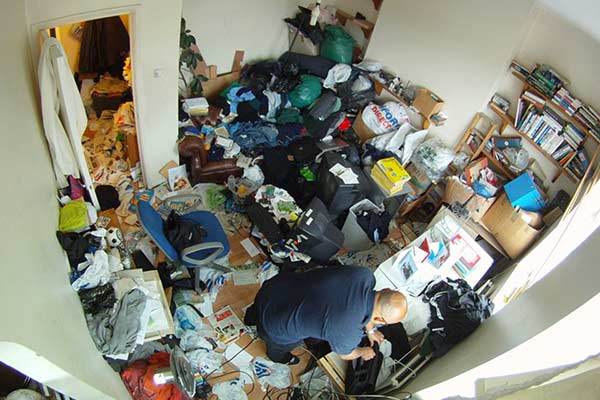Hoarding continues to grow at staggering rates, particularly as our US population ages. In fact, according to this article on hoarding facts, hoarding begins as early as 12 or 13 years old and worsens if not treated. Other studies suggest that if you grow up in a hoarded home you have a 50% chance of becoming a hoarder as an adult.
For many years psychologists connected Hoarding to OCD, but, in the past few years, Hoarding was recognized and is now classified as its own condition, oftentimes with OCD as an accompanying condition. Approximately 92% of people who hoard have co-occurring mental disorders.
This article from the National Geographic suggests that studies prove that the primary reasons for Hoarding are biologically based rather than psychologically based. I don’t have an opinion because I am not a doctor, but I can tell you from experience that hoarding, whether it is biological or psychological, or a combination of the two, is very difficult for family and friends to help a hoarder that is convinced that they need all of the disposable debris (trash) or whatever it is they hoard.
Four keywords that are found when talking about Hoarding are: Indecisiveness, Perfectionism, Procrastination, and Avoidance. Yes, perfectionism believe it or not. As the article explains, it seems counterintuitive, but the theory is that they are failed perfectionists and have given up striving for perfection because nothing short of perfection is acceptable.
If you have a loved one or a friend that is a hoarder, there is help, but they have to want to be helped. Otherwise a family member must take control of the situation before it’s too late and they are forced by authorities to either cleanup the cluttered home, or forced to leave.
Call Bio SoCal for a free estimate and let’s discuss how we can help recover the home and return it to a safe and healthy environment

